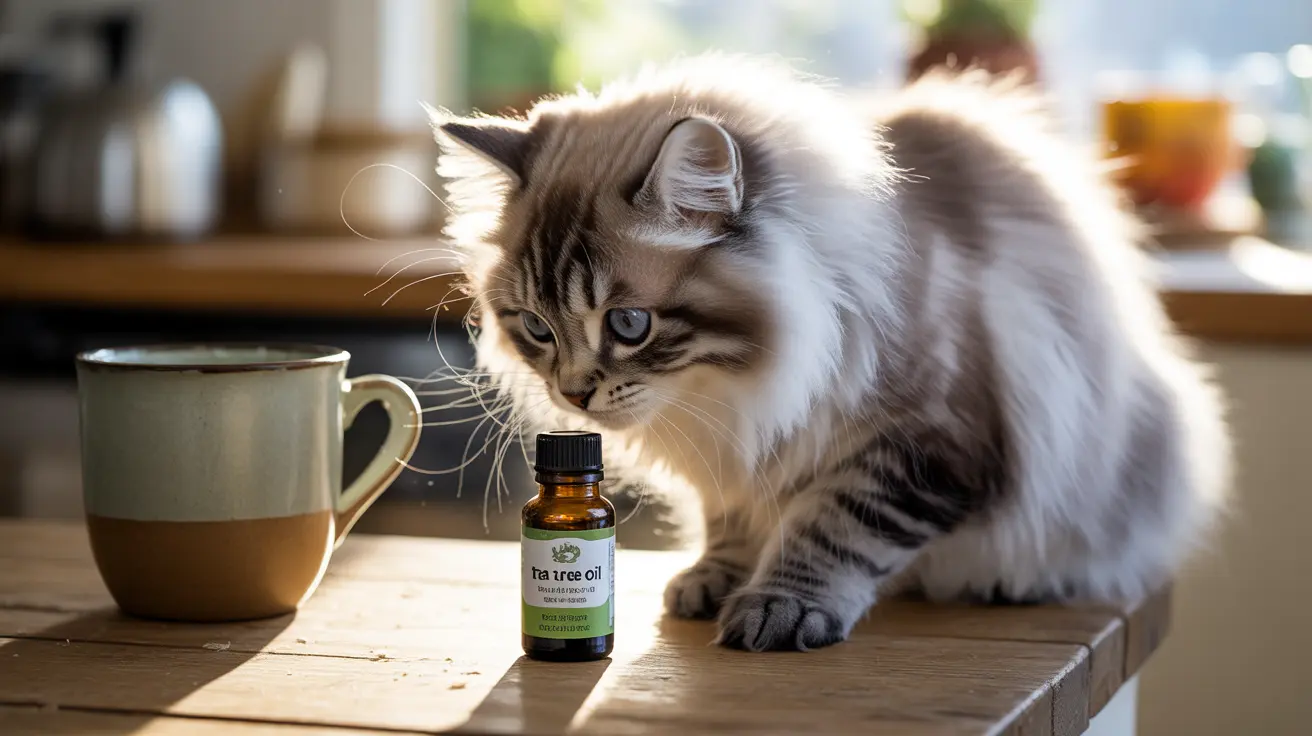As cat owners search for natural flea control solutions, many wonder if tea tree oil could be an effective treatment. However, veterinary experts strongly caution against using tea tree oil for flea control on cats due to serious safety concerns and limited evidence of effectiveness.
This comprehensive guide explores the relationship between tea tree oil and flea control for cats, examining both the potential risks and what science tells us about its efficacy. Most importantly, we'll discuss why veterinarians recommend avoiding this treatment and what safer alternatives are available.
Understanding Tea Tree Oil and Its Effects on Cats
Tea tree oil, derived from Melaleuca alternifolia, contains compounds that may have insect-repelling properties. However, these same compounds can be extremely toxic to cats, whose bodies lack the necessary enzymes to process essential oils safely.
While some natural health websites promote tea tree oil as a flea treatment, scientific evidence supporting its effectiveness is notably lacking. More concerning are the documented cases of severe toxicity in cats exposed to this essential oil.
The Dangers of Tea Tree Oil for Cats
Veterinary research has shown that even small amounts of tea tree oil can be hazardous to cats. As little as 7 drops of 100% tea tree oil can cause severe poisoning, with potentially fatal consequences. Cats can be exposed through:
- Direct skin application
- Inhalation from diffusers or sprays
- Accidental ingestion during grooming
- Absorption through the skin
Signs of Tea Tree Oil Toxicity
Cat owners should be aware of these warning signs of tea tree oil poisoning:
- Drooling and vomiting
- Weakness and lack of coordination
- Muscle tremors
- Depression or lethargy
- Severe neurological symptoms
- Liver damage
- In worst cases, coma or death
Does Tea Tree Oil Actually Kill Fleas?
Despite anecdotal claims, scientific evidence does not support tea tree oil as an effective flea control method. While it may have some repellent properties, it has not been proven to kill fleas or disrupt their life cycle effectively.
Most importantly, the risks far outweigh any potential benefits. Veterinarians emphasize that there are many safe, proven flea treatments available that don't put your cat's health at risk.
Safe and Effective Alternatives for Flea Control
Instead of tea tree oil, veterinarians recommend these proven flea control methods:
- FDA-approved topical flea treatments
- Prescription oral flea medications
- Vet-approved flea collars
- Regular grooming with flea combs
- Environmental flea control measures
Frequently Asked Questions
Does tea tree oil effectively kill fleas on cats, and is it safe to use?
No, tea tree oil is not safe for use on cats. While it may have some insect-repelling properties, there is no scientific evidence that it effectively kills fleas. The risks of toxicity far outweigh any potential benefits.
How can I dilute tea tree oil to use it safely on my cat for flea control?
Veterinarians strongly advise against using tea tree oil on cats in any concentration. Even diluted tea tree oil can be toxic to cats, and there is no safe dilution ratio that eliminates the risk of poisoning.
What are the signs of tea tree oil toxicity in cats, and how quickly do symptoms appear?
Symptoms typically appear within 2-8 hours and include drooling, vomiting, weakness, tremors, and neurological issues. In severe cases, cats may experience liver failure, seizures, or death. Immediate veterinary care is essential if exposure occurs.
Are there any safer, natural alternatives to tea tree oil for controlling fleas on cats?
Yes, safer natural options include regular grooming with a flea comb, washing bedding frequently, and vacuuming regularly. However, veterinarian-approved flea treatments remain the most effective and safest option for flea control.
Can I use tea tree oil in flea shampoos for cats, or are there safer options recommended by veterinarians?
Never use tea tree oil-containing shampoos on cats. Instead, use veterinarian-recommended flea shampoos specifically formulated for cats. These products have been tested for safety and efficacy.
Conclusion
While the appeal of natural flea treatments is understandable, tea tree oil poses serious risks to cats and lacks scientific evidence supporting its use as a flea control method. Cat owners should always consult with their veterinarian and use only approved flea control products to ensure their pet's safety and effectively manage flea infestations.






